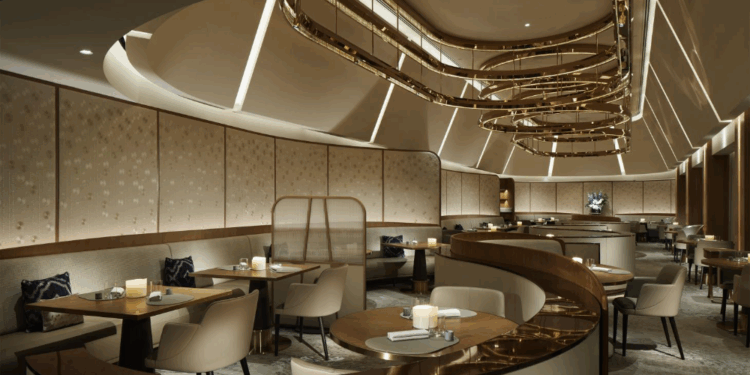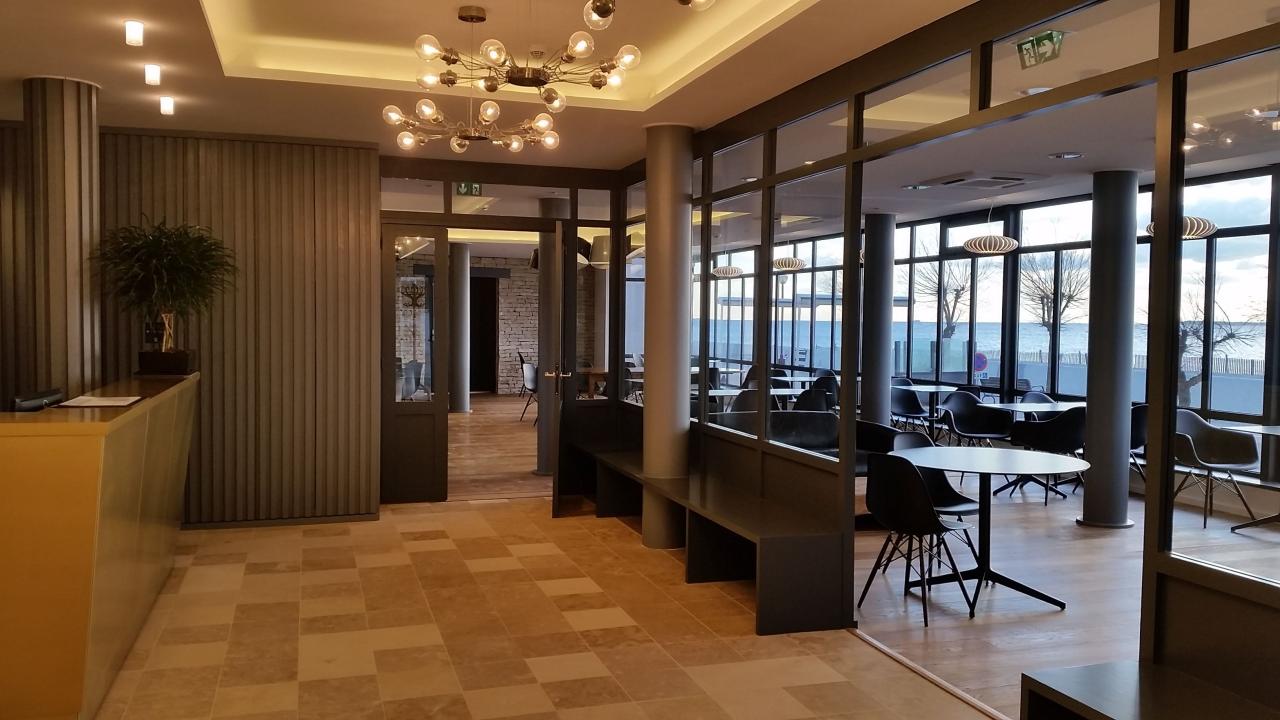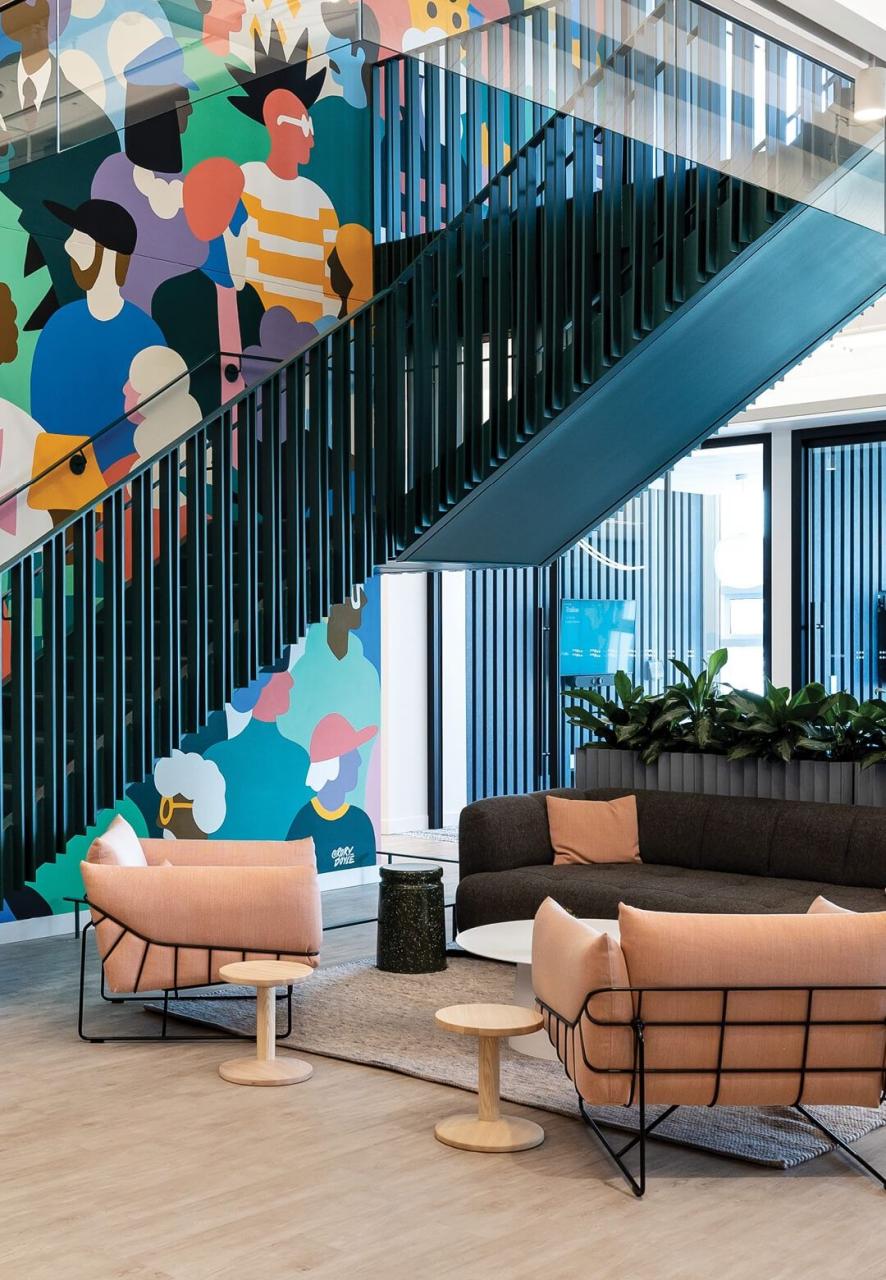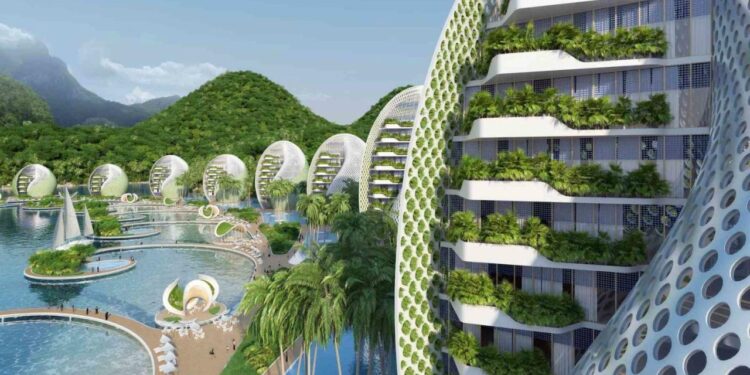Hotels Thrive Post-Pandemic: Recovery & Future
The global hospitality sector, particularly the hotel industry, has demonstrated remarkable resilience and an astounding capacity for recovery in the aftermath of the unprecedented challenges posed by the recent pandemic. What was once a landscape fraught with uncertainty, characterized by plummeting occupancy rates, widespread closures, and a fundamental shift in traveler behavior, has now transitioned into a period of robust resurgence. This comprehensive article will meticulously examine the multifaceted dynamics of this post-pandemic hotel recovery boom, dissecting the key drivers behind its impressive rebound, exploring the innovative strategies hoteliers have implemented to adapt and thrive, and peering into the future trends that are poised to redefine the guest experience and operational paradigms within the industry. We’ll delve into how consumer confidence has been reignited, the digital transformation accelerated, and the very concept of hospitality reimagined to meet evolving demands.
Understanding the Recovery Momentum
The initial impact of the pandemic on the hotel industry was catastrophic. Travel restrictions, lockdowns, and widespread fear brought global tourism to an almost complete standstill. However, as vaccination rates climbed and restrictions eased, a pent-up demand for travel, often referred to as “revenge travel,” began to fuel a powerful recovery. This wasn’t merely a return to pre-pandemic norms; it was a redefinition of travel itself, driven by new priorities and preferences.
A. Unleashed Pent-Up Demand and “Revenge Travel”
One of the most significant forces behind the rapid hotel recovery has been the phenomenon of pent-up demand. After prolonged periods of confinement and a dearth of leisure opportunities, individuals and families eagerly sought to reconnect with the world, experience new cultures, and simply enjoy a change of scenery. This psychological urge manifested as “revenge travel,” a strong desire to make up for lost time and missed experiences. Key aspects included:
- Leisure Travel Dominance: Initially, leisure travel led the charge, with individuals prioritizing vacations, family visits, and bucket-list experiences. Coastal resorts, national parks, and popular tourist destinations saw an immediate surge in bookings as people sought escapes.
- Domestic Travel Priority: With international travel still facing uncertainties and evolving regulations, domestic tourism flourished. People explored their own countries more extensively, discovering local gems and supporting regional economies. This fostered a renewed appreciation for local attractions and staycations.
- Increased Length of Stays: Many travelers, having saved money during lockdowns, opted for longer stays, transforming short breaks into extended holidays, further boosting occupancy and revenue per available room (RevPAR). This also allowed for deeper immersion in destinations.
B. Easing of Travel Restrictions and Restored Confidence
The gradual and coordinated easing of international and domestic travel restrictions played a pivotal role in normalizing travel and restoring consumer confidence. As borders reopened, quarantine requirements lessened, and health protocols became standardized, the perceived risk of travel significantly diminished. This included:
- Vaccine Passports and Health Certifications: The introduction of digital health passes and proof of vaccination facilitated smoother international travel, streamlining processes at airports and borders. This provided a framework for safer movement.
- Enhanced Hygiene Protocols: Hotels implemented rigorous and transparent hygiene and sanitation protocols, often exceeding government guidelines. Initiatives like contactless check-in, enhanced cleaning of high-touch surfaces, and readily available hand sanitizers reassured guests of their safety.
- Clear Communication Strategies: Hoteliers effectively communicated their safety measures and flexibility policies (e.g., free cancellations) to guests, building trust and alleviating anxieties, thereby encouraging bookings.
C. Government Support and Economic Stimulus
Various governments worldwide provided substantial support to the hospitality sector through economic stimulus packages, grants, and loan programs. This crucial financial aid helped hotels weather the storm, retain staff, and invest in necessary adaptations. Examples included:
- Wage Subsidies and Employee Retention Schemes: Programs designed to help businesses cover payroll, preventing mass layoffs and preserving skilled workforces for the recovery phase.
- Tax Relief and Deferrals: Financial measures that eased the burden on struggling businesses, allowing them to conserve cash flow and focus on recovery.
- Tourism Promotion Campaigns: Government-backed initiatives to actively promote domestic and international tourism, encouraging people to travel and spend. These campaigns highlighted the safety and appeal of various destinations.
Adapting to the New Normal: Strategic Innovations in Hospitality
The pandemic forced hoteliers to innovate at an unprecedented pace, accelerating trends that were already nascent and introducing entirely new operational models. Adaptability became the cornerstone of survival and success.
A. Digital Transformation and Contactless Experiences
The imperative for safety and efficiency rapidly accelerated the digital transformation within hotels. Technology moved from being a convenience to a necessity, reshaping the guest journey.
- Contactless Check-in/Check-out: Mobile apps and self-service kiosks became standard, allowing guests to bypass the front desk entirely. This reduced physical contact and streamlined the arrival/departure process, improving guest flow.
- Digital Keys and Room Controls: Smartphones became virtual room keys, and guests could control lighting, temperature, and even order room service directly from their devices, enhancing convenience and personalization.
- QR Code Menus and Digital Concierge Services: Physical menus were largely replaced by QR codes linking to digital versions, and AI-powered chatbots or dedicated hotel apps offered instant concierge services, answering queries and fulfilling requests without human interaction.
- Personalized Guest Communication: Hotels leveraged CRM (Customer Relationship Management) systems to send personalized pre-arrival information, in-stay updates, and post-departure feedback requests, enhancing engagement and anticipating needs.
B. Redefining Cleanliness and Wellness Protocols
Beyond just basic hygiene, hotels elevated their cleanliness standards to a clinical level, making “clean” a core component of their luxury offering. Wellness also expanded beyond the spa to encompass holistic well-being throughout the stay.
- Hospital-Grade Cleaning Standards: Adoption of advanced cleaning technologies, including electrostatic sprayers, UV-C light sanitizers, and EPA-approved disinfectants, ensuring thorough sanitization of all areas. This was often communicated transparently to guests.
- Air Quality Enhancements: Investment in upgraded HVAC (Heating, Ventilation, and Air Conditioning) systems with HEPA filters and increased fresh air circulation to improve indoor air quality and reduce airborne contaminants.
- Wellness-Focused Amenities: Introduction of in-room fitness equipment, guided meditation programs accessible via smart TVs, healthy and immunity-boosting food options, and partnerships with local wellness providers for unique experiences.
- Dedicated Hygiene Managers: Some larger hotels appointed dedicated “Hygiene Managers” or “Cleanliness Ambassadors” to oversee protocols and serve as a point of contact for guest concerns, further cementing trust.
C. Flexible Booking and Cancellation Policies
Uncertainty around travel plans during the pandemic necessitated greater flexibility from hotels. This focus on guest-centric policies became a competitive advantage and a new industry standard.
- No-Questions-Asked Cancellation Policies: Offering full refunds or flexible rebooking options up to 24 or 48 hours before arrival became common practice, alleviating guest concerns about changing travel restrictions or personal circumstances.
- Book Now, Pay Later Options: Allowing guests to secure reservations without immediate payment, providing financial flexibility and reducing booking friction.
- Dynamic Pricing Strategies: Utilizing sophisticated revenue management systems to adjust pricing in real-time based on demand, occupancy forecasts, and market conditions, optimizing revenue while remaining competitive.
D. Food and Beverage Innovations
Dining experiences, traditionally a cornerstone of hotel hospitality, had to rapidly evolve to ensure safety and adapt to changing preferences.
- Grab-and-Go Options and In-Room Dining: Emphasis shifted from bustling buffets to pre-packaged meals, gourmet grab-and-go markets, and enhanced in-room dining services, offering convenience and privacy.
- Outdoor and Al Fresco Dining: Maximizing outdoor spaces for dining, creating inviting patios, rooftops, and garden seating areas to accommodate social distancing while offering enjoyable culinary experiences.
- Pop-Up Concepts and Local Partnerships: Collaborating with local chefs or introducing temporary pop-up restaurants to offer unique, rotating culinary experiences that attract both guests and local residents.
- Ghost Kitchens: Some hotels explored “ghost kitchens” – dedicated spaces for preparing food for delivery or takeout, catering to guests who prefer to dine in their rooms or to local residents.
Emerging Trends and the Future of Hospitality
The recovery boom isn’t just about bouncing back; it’s about building forward. Several key trends are now shaping the long-term future of the hotel industry, promising a more sustainable, personalized, and technology-driven experience.
A. The Blurring Lines: Hybrid Models and Mixed-Use Developments
The traditional definitions of hotel, office, and residential spaces are increasingly merging, leading to innovative hybrid models.
- “Work from Hotel” Concepts: Recognizing the rise of remote work, hotels are offering packages that combine accommodation with dedicated workspace, high-speed internet, and access to hotel amenities for extended periods, catering to “digital nomads” and business travelers alike.
- Co-working Spaces within Hotels: Converting underutilized meeting rooms or common areas into sophisticated co-working spaces accessible to both guests and local communities, generating additional revenue streams and fostering a vibrant atmosphere.
- Mixed-Use Developments: New hotel constructions often integrate residential units, retail spaces, and entertainment venues, creating vibrant hubs that attract diverse clientele and enhance the overall guest experience, offering more than just a place to sleep.
- Extended Stay Focus: A growing emphasis on extended-stay offerings, catering to guests who require longer durations for leisure, work, or relocation, providing apartment-style amenities and a sense of home.
B. Sustainability and Regenerative Tourism at the Forefront
Beyond basic eco-friendliness, a deeper commitment to environmental stewardship and community engagement is becoming a competitive differentiator and a fundamental expectation.
- Net-Zero Hotels and Carbon Neutrality: Ambitious goals to achieve net-zero carbon emissions through renewable energy sources, energy-efficient building designs, and robust carbon offsetting programs.
- Waste Reduction and Circular Economy Principles: Implementing comprehensive waste management programs, reducing single-use plastics, composting food waste, and exploring partnerships that support a circular economy within their operations.
- Local Sourcing and Community Impact: Prioritizing the sourcing of local produce, goods, and services to reduce supply chain emissions and directly support local farmers, artisans, and businesses, ensuring tourism benefits the wider community.
- Water Conservation Technologies: Investing in smart water management systems, low-flow fixtures, and water recycling programs to minimize water consumption, particularly in water-stressed regions.
- Biodiversity Protection: Hotels located in natural areas are increasingly partnering with conservation organizations to protect local ecosystems, restore habitats, and educate guests about local flora and fauna.
C. Hyper-Personalization and Data-Driven Guest Experiences
Leveraging advanced data analytics and AI, hotels are moving beyond basic customization to create truly individual and intuitive guest experiences.
- Predictive Personalization: Using AI to anticipate guest needs and preferences based on past behavior, booking history, and even external data points (e.g., weather forecasts), allowing hotels to proactively offer tailored recommendations or amenities.
- AI-Powered Concierge and Chatbots: More sophisticated AI assistants capable of handling complex requests, providing real-time recommendations, and even anticipating potential issues, offering seamless support throughout the guest journey.
- Biometric Recognition and Seamless Access: While still debated for privacy, technologies like facial recognition or fingerprint scanning could offer entirely seamless check-in, room access, and payment, though ethical considerations remain crucial.
- Customized Digital Content: Delivering highly relevant content to guests’ in-room devices or personal smartphones, such as personalized local guides, curated playlists, or bespoke wellness programs.
D. The Evolving Role of Human Capital and Service Excellence
Despite the rise of technology, the human touch remains irreplaceable in luxury hospitality. The focus shifts from transactional service to empathetic, intuitive, and highly skilled personal interaction.
- Empowered Staff and Emotional Intelligence: Training hotel staff to possess high emotional intelligence, allowing them to anticipate unspoken needs, resolve issues with grace, and create genuine, memorable connections with guests.
- Multi-Skilled and Agile Workforce: Developing staff with diverse skill sets, capable of handling various roles (e.g., front desk, concierge, F&B support) to ensure operational flexibility and enhance guest service across different touchpoints.
- Employee Well-being and Retention: Recognizing that happy employees lead to happy guests, hotels are prioritizing staff well-being through improved benefits, mental health support, professional development, and fair compensation to combat labor shortages and ensure high-quality service.
- Storytelling and Brand Ambassadors: Empowering staff to act as brand ambassadors, sharing the hotel’s unique story, local insights, and personal recommendations, enriching the guest experience and fostering loyalty.
E. Immersive and Experiential Travel Reinvented
The demand for authentic and transformative experiences continues to grow, pushing hotels to integrate unique local culture and adventure into their offerings.
- Themed and Concept Hotels: Properties designed around specific themes (e.g., art, music, history, wellness, adventure) offering immersive environments and curated experiences that appeal to niche interests.
- Local Partnerships and Cultural Immersion: Deep collaborations with local artisans, chefs, musicians, and cultural institutions to offer exclusive workshops, behind-the-scenes tours, and authentic culinary experiences that connect guests with the true essence of the destination.
- Adventure and Nature-Based Tourism: Hotels located in or near natural wonders increasingly offer curated adventure itineraries, from guided hikes and wildlife safaris to bespoke water sports and stargazing experiences, catering to the growing desire for outdoor exploration.
- Educational Tourism: Combining leisure travel with opportunities for learning new skills or deepening knowledge, such as culinary schools, photography workshops, or language immersion programs offered directly by hotels or in partnership with local experts.
Challenges and Opportunities on the Horizon
While the recovery has been robust, the hotel industry still faces evolving challenges and new opportunities that will shape its trajectory in the coming years.
A. Labor Shortages and Workforce Development
One of the most pressing challenges post-pandemic has been significant labor shortages across all segments of the hospitality industry. Many workers left the sector during the downturn and have not returned.
- Automation and Robotics: Increased adoption of automation for repetitive tasks (e.g., cleaning robots, automated check-in kiosks) to compensate for labor shortages and improve efficiency, freeing up human staff for higher-value guest interactions.
- Upskilling and Reskilling Programs: Investment in comprehensive training programs to upskill existing staff and reskill new hires, making them adaptable to new technologies and diverse roles.
- Attractive Employee Value Proposition: Crafting competitive compensation packages, flexible work arrangements, and strong career development paths to attract and retain talent in a highly competitive job market.
B. Economic Volatility and Inflationary Pressures
Global economic uncertainties, including high inflation and potential recessions, could impact consumer spending on discretionary items like travel.
- Value Proposition Reassessment: Hotels must continuously reassess and articulate their unique value proposition to guests, justifying price points through exceptional service, unique experiences, and clear benefits.
- Cost Optimization and Efficiency: Implementing smart operational efficiencies and energy management systems to control rising costs without compromising guest experience.
- Diversification of Revenue Streams: Exploring new revenue sources beyond traditional room bookings, such as subscription models for co-working spaces, retail partnerships, or unique event hosting.
C. Climate Change and Environmental Risks
The increasing frequency and intensity of extreme weather events pose direct threats to hotel properties and operations, particularly in coastal or environmentally vulnerable regions.
- Resilient Infrastructure and Design: Investing in climate-resilient building designs, advanced storm protection, and robust infrastructure to mitigate the impact of extreme weather events.
- Proactive Risk Management: Developing comprehensive contingency plans for natural disasters, including evacuation procedures, emergency communication protocols, and business continuity strategies.
- Insurance and Financial Safeguards: Ensuring adequate insurance coverage and financial reserves to recover from unforeseen environmental events and sustain operations.
Conclusion
The post-pandemic hotel recovery boom is a testament to the industry’s extraordinary resilience, adaptability, and unwavering commitment to hospitality. It has not merely been a return to business as usual, but rather a profound catalyst for accelerated innovation and a reimagining of what it means to travel and be hosted. From the pervasive adoption of contactless technologies and elevated hygiene standards to the burgeoning demand for authentic, sustainable, and highly personalized experiences, the hotel sector has fundamentally transformed itself to meet the evolving expectations of the modern traveler.
Looking ahead, the future of hotels is one of dynamic evolution. It will be characterized by increasingly sophisticated integration of technology, a deeper commitment to environmental stewardship, a focus on holistic well-being, and an unwavering dedication to delivering genuine, memorable human connections. While challenges such as labor shortages and economic volatility persist, the opportunities for growth, innovation, and creating truly transformative guest journeys are immense. The hotel industry is not just recovering; it’s reinventing itself, promising a future of richer, more meaningful, and ultimately unforgettable travel experiences for guests worldwide. The journey continues, marked by resilience, innovation, and an unyielding spirit of hospitality.










